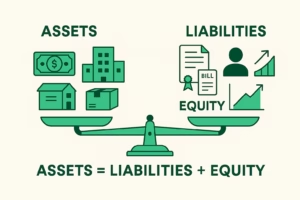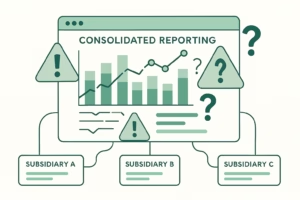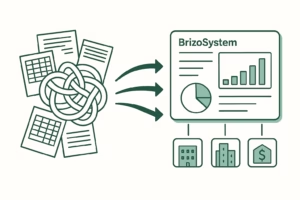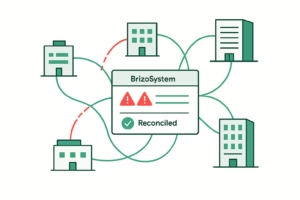BrizoSystem
-

Carbon Accounting for SMEs: What It Is, How It Works, and Why It Matters
—
in AccountingFor many small and medium-sized enterprises (SMEs), carbon accounting still sounds like something meant for large multinationals with sustainability teams and complex reporting frameworks. But that perception is changing —…
-

Understanding the Assets–Liabilities–Equity Equation
—
in AccountingAt the heart of accounting lies one simple but powerful idea:everything a business owns is funded either by borrowing or by the owners themselves. This idea is captured in the…
-

Five Reporting Signals Your Group Data Can’t Be Trusted
—
In group reporting, accuracy isn’t just about having numbers that add up. It’s about confidence — confidence that leadership can rely on the data to make decisions, that finance teams…
-

From Chaos to Clarity: A Smarter Way to Consolidate Financials
—
For many finance teams, financial consolidation feels less like an organized process and more like a monthly emergency. Files fly back and forth through email. Multiple versions of spreadsheets stack…
-

Asset Retirement Obligation (ARO): Planning for the End Before It Begins
—
in AccountingIn business, most attention goes to acquiring, building, and using assets. But what about the cost of removing, cleaning up, or restoring the environment after the asset is no longer…
-

Why Intercompany Mismatches Happen: A Deep Dive into Root Causes and Fixes
—
Intercompany transactions are a natural part of any growing business group. When subsidiaries trade goods, provide services, or lend funds to one another, these transactions must be recorded and later…
-

Deferred Revenue Expenditure: When Expenses Don’t Belong in Just One Year
—
in AccountingIn accounting, not all expenses are straightforward. Some costs are paid today but are expected to benefit the business over several years, making it misleading to record everything as an…
-

Intercompany Markups, Unrealized Profit, and Their Effect on Group Margins
—
When groups scale across entities, countries, or business units, intercompany transactions become unavoidable. But these internal transactions often introduce a hidden distortion: unrealized profit embedded in intercompany markups. If not…
-

BrizoSystem Monthly Product Update: A Better, Smoother, More Insightful Experience
—
in NewsThis month, the BrizoSystem team rolled out several enhancements designed to make your financial reporting experience smoother, clearer, and more collaborative. Here’s a quick look at what’s new. ✨ Refreshed…
